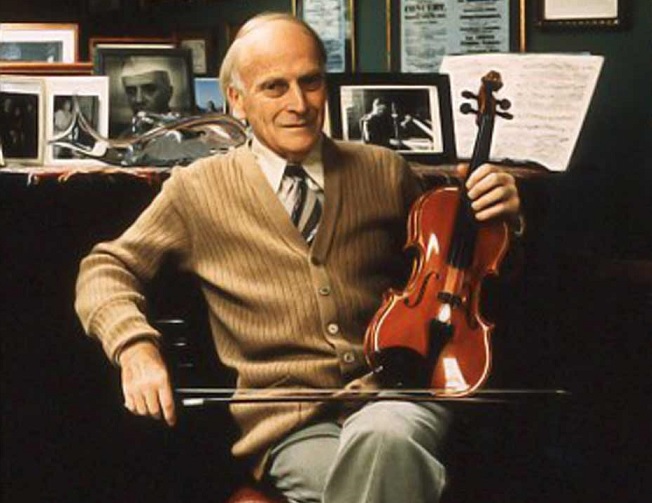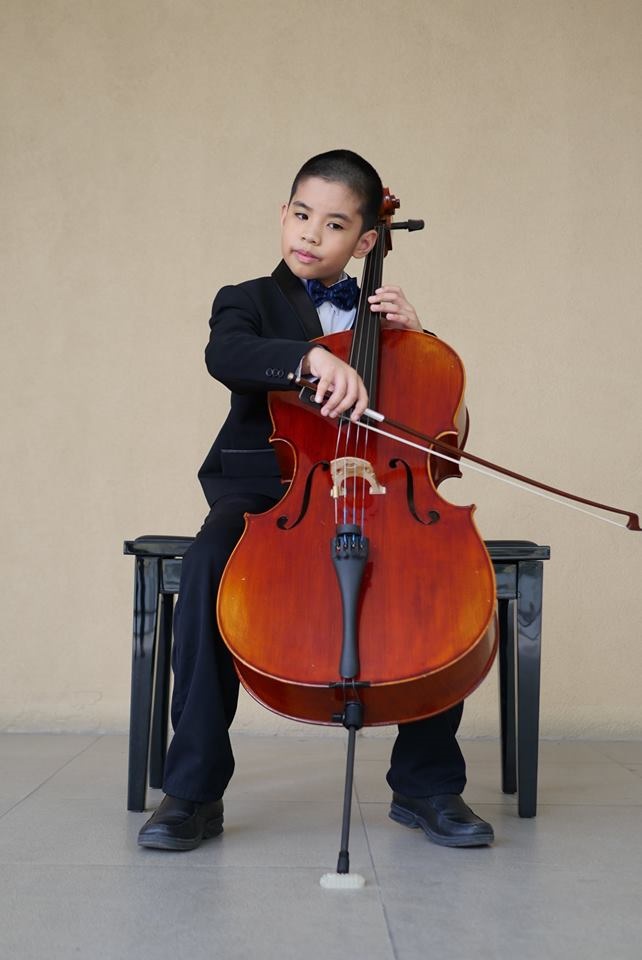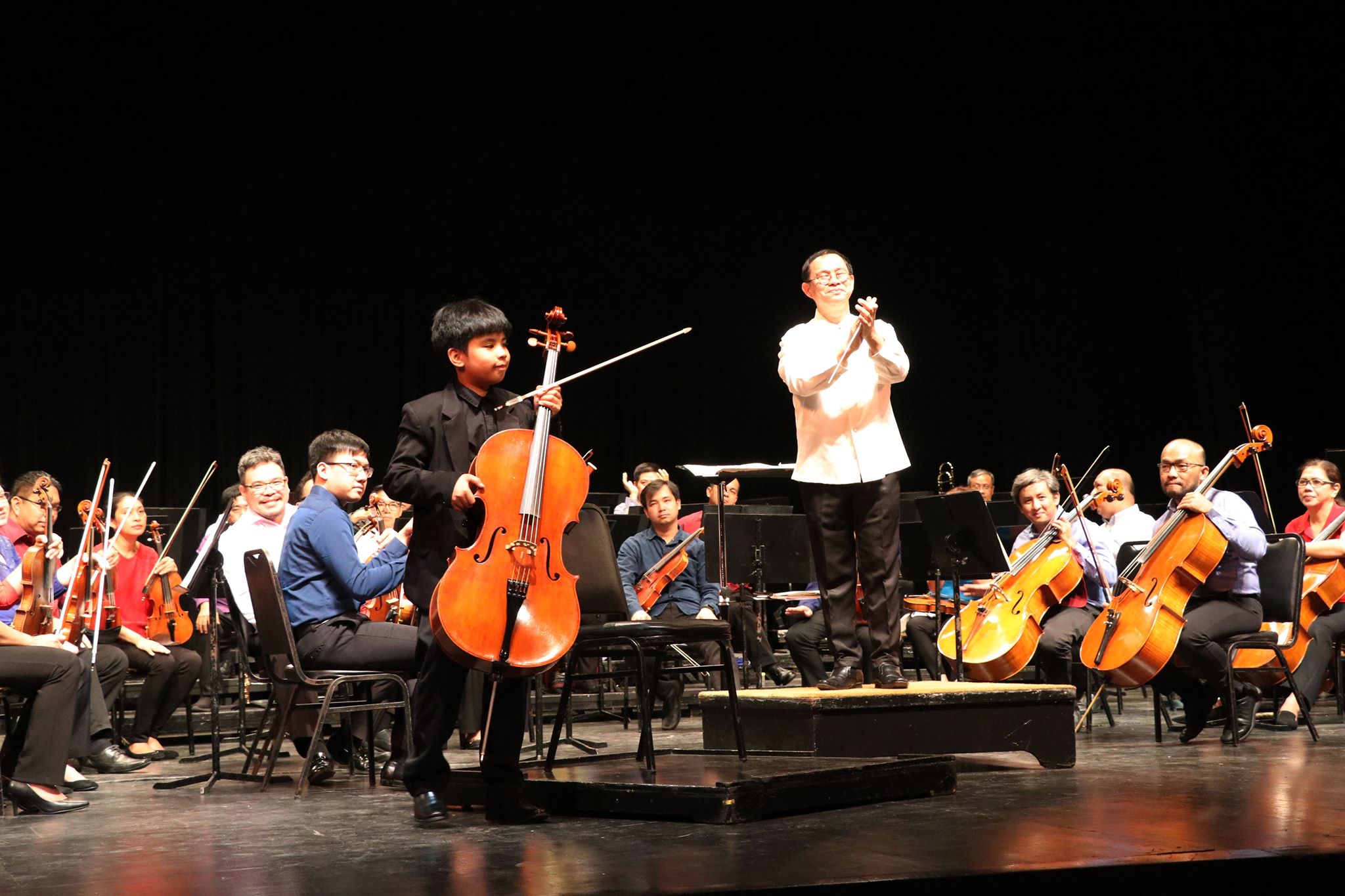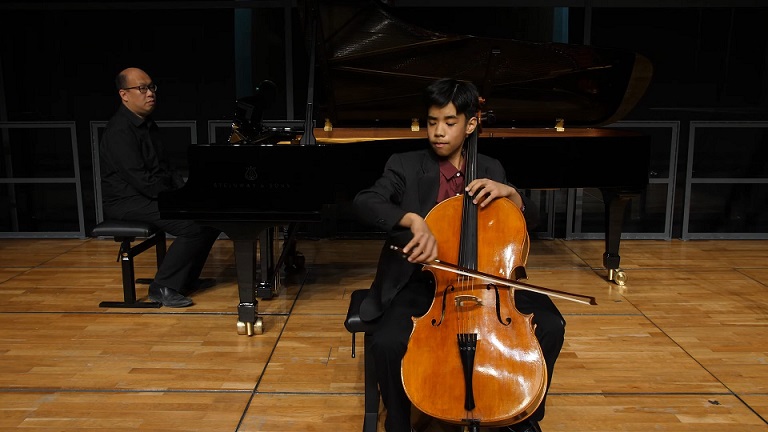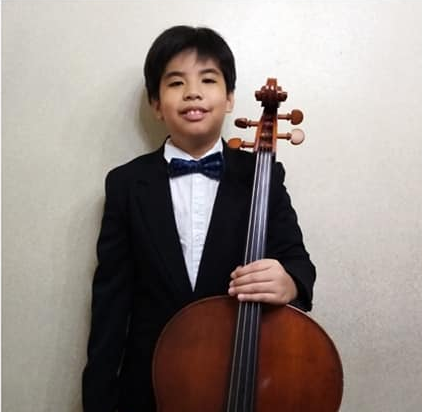
Damodar Das Castillo as first prize winner of the 2020 Anton Rubinstein International Music Competition.
The 12-year old Filipino cello prodigy Damodar das Castillo is also locked down in Salzburg, Austria where he is a scholar in Mozarteum University for almost three years now.
“It doesn’t make any difference to Damodar (Das Castillo) because he was really home-schooled from the very beginning,” said the prodigy’s father, Alvin Castillo.
The cello prodigy made news at the height of the COVID-19 crisis last March 29 when he won first prize (along with a South Korean) in the 2020 Anton Rubinstein International Music Competition (Junior Cello Category) winning over 15 equally superb finalists from Germany, Russia, Australia and Austria, among others.
Last year, he also won first prize in the International Competition for Young Artists in Talinn, Estonia.
Because of the pandemic, the jury decided not to hold the last phase of the competition live in Dusseldorf.
The finalists were judged on the basis of the videos submitted to the jury.
Damodar sent videos of him performing Tchaikovsky’s Pozzo Capriccioso, Op. 62 and Nocturne Op. 19, No. 4 and Saint-Saens’ A Minor cello concerto he played with the Philippine Philharmonic.
As it turned out, Damodar won first place along with Yelin Han from South Korea.
No contestants qualified for the second prize.
Third prize went to Tikhon Evlanov from Russia.
Special prizes were given to best interpretation of Variations Of A Theme “Moses in Egypt” by Paganini which went to Maria Mafalda Mazzon of Italy and a special prize for the best interpretation of a Haydn concerto which went to Simon Dorfler of Austria.
Damodar didn’t expect to win considering that most contestants came from countries with famous music schools.
He said he just practiced diligently following his teacher’s advice. He is under the tutelage of Prof. Barbara Leubke of the Mozarteum.
“The competition had no easy part,” Damodar added. “It was all hard work. I saw some of the videos of the finalists and they were just superb. That South Korean who tied with me was really super good.”
He celebrated his victory by asking his Dad to buy him an electronic scooter.
The father said he allowed Damodar all the leeway to focus on his music before the competition. “The preparations for the competition were something between him and his teacher. Of course, my son is the kind who gets into practice mode without being told. I do the other things to make things easy for him. I do the laundry and grocery chores and I give him the daily schedule that he should follow before the competition. He wakes up at 6, four hours on the cello, two hours of German lesson and the rest any subject including music exercises. He has time to play of course. But he has to be in bed at 9. Classes are online because of the lockdown.”
Of late, the father noticed the son spends his free time listening to all kinds of music from classical, deathmetal, beatbox and lately, the blues.”
Even with his scholarship, Damodar has to cope with other expenses. It is providential the prodigy has a special patron in the person of Ernesto Echauz of Standard Insurance Company Inc.
Before the Anton Rubinstein competition, Damodar was actually considering joining the Tchaikovsky International Competition (Junior category) usually held in Russia.
He prepared for three rounds of the competition by studying different pieces.
Suddenly, the venue of the competition was moved to China.
It was problematic for the father because he has to work on his visa and China is virtually the other end of the world from Salzburg. “I cannot afford to be absent from Salzburg for three weeks. I also thought he had slim chances of winning since most of the contestants were mostly age 17 and above. So, we ended up in the Anton Rubinstein competition since the venue is just five hours away from Salzburg.”
Initially, Damodar’s teacher thought it was a good idea. The prodigy was excited since the people in the Tchaikovsky jury were his idols. On top of that, the price was good.
It was providential that the China competition didn’t push through.
Damodar was deep into preparations when COVID-19 made its quick conquest and the first epicenter turned out to be Wuhan, China.
The Dusseldorf competition was named after the academy named after Anton Rubinstein, a Russian pianist, composer and conductor who founded the St. Petersburg Conservatory. He is the elder brother of Nikolai Rubinstein who founded the Moscow Conservatory where Filipino scholar Rowena Arrieta studied and won fifth place in the 1982 Tchaikovsky Competition. Gold medalist in the same competition was Brazilian cellist Antonio Meneses who got married to Cecile Licad with whom he has a son.
Meanwhile, the prodigy is very much in touch with situations in his home country.
Last April 5, the Museo Pambata posted a video of Damodar playing a special piece for the country’s frontliners.
He was not aware his winning the top prize in the Dusseldorf competition was one big news that brought instant joy and national pride to a country reeling from corona virus.
Last year, Damodar was a big hit in Iloilo City’s Nelly Garden where he left an Ilonggo audience teary-eyed with his encore piece, Ohoy Alibangbang.
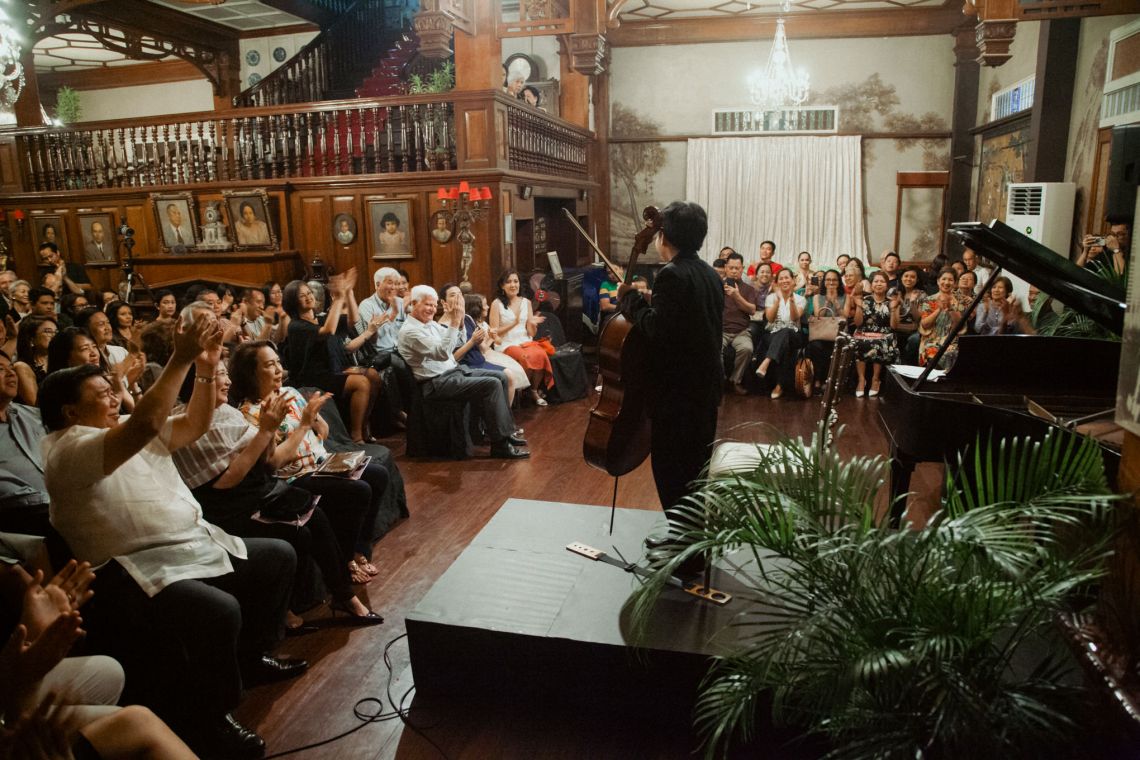
The cheering instant fans of Damodar Das Castillo in Iloilo City’s Nelly Garden.
It also elicited a standing ovation and euphoric response from netizens when the encore piece was posted on the internet.
“That long-forgotten piece left me in tears and brought back memories of innocence and the simple joys of yearning just to be,” said actor-director Bibeth Orteza.
Poet Marne Kilates said upon hearing the encore piece on FB, “That boy is special and his playing brought out the harsh beauty of memory I couldn’t help crying.”

